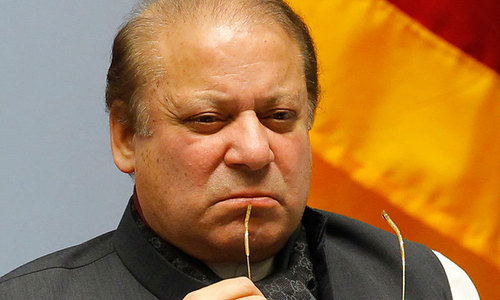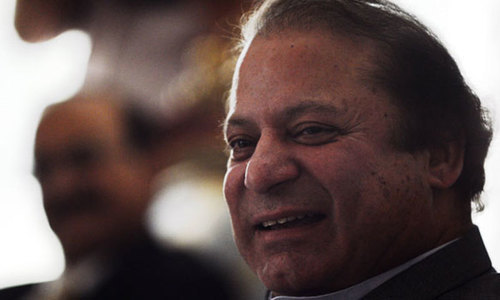
ISLAMABAD: Outspoken human rights activist Asma Jahangir on Thursday criticised military involvement in politics and the judiciary’s role over the years, wondering why only politicians were held accountable in Pakistan.
Addressing a ‘Meet the Press’ event at the National Press Club, the senior lawyer sarcastically observed that the law on freedom of expression allowed individuals to speak against politicians and their family members, but did not permit criticism of the army or any other country.
Editorial: Court should review judgement in the Panama papers case
“If the army gets itself involved in politics, fingers will be raised. We will continue to stand against their weapons with pens in our hands and we will not stop raising our voice for the rights of people,” she stressed.
Criticises judges for never ruling against military or land mafia
Recalling that the defence budget could not be discussed in parliament, Ms Jahangir noted that the armed forces should stop taking taxpayer money if they were unwilling to disclose this information.
Talking about the recently announced judgement that disqualified Nawaz Sharif, she called for the right of appeal to be given in cases of fundamental rights i.e. those heard under Article 184(3) of the Constitution.
“Whenever the Supreme Court takes suo motu notice and announces a decision, the aggrieved party loses the chance to appeal and can only file a review application. Parliament should amend the law to give the right of appeal,” she suggested.
She said that the judiciary gave decisions against politicians, but it had never shown the courage to deliver a verdict against the military.
“Parliament committed a blunder by allowing military courts, but the Supreme Court committed an even bigger blunder by allowing them on the pretext that [civilian] courts were not functioning properly. It is my suggestion to parliament that it should not allow 17 nominated individuals (judges) to amend the Constitution,” she said.
The firebrand lawyer mused that the judge who had called the ousted prime minister a ‘godfather’ had not considered that he had been kicked out of the PM’s office twice before.
Talking about the inclusion of intelligence officials in the Joint Investigation Team (JIT) tasked with probing money laundering allegations against the Sharif family, she asked — rhetorically — how the judges would feel if members of the Inter-Services Intelligence and Military Intelligence were included in the Supreme Judicial Council.
“After the JIT report, it was claimed that the PML-N was a ‘Sicilian mafia’, but unfortunately the courts have never given a decision against the real mafia; they don’t even rule against the land mafia,” she said. Advising Nawaz Sharif to seek relief from the people, she recommended that the ousted prime minister should come out onto the streets and hold public meetings in Gawalmandi, The Mall and GT Road.
Later, answering journalists’ questions, she said that the court had no right to hear the case against Nawaz Sharif under Article 184(3) and should have refused to entertain it.
She also said that Pakistan should start trading with neighbouring countries, rather than relying on smuggling which, she claimed, was allowed to continue because its proceeds were pocketed by certain elements.
She was of the opinion that Pakistan could not obtain Kashmir through war and urged the country to initiate a dialogue and engage India on different issues before finally going for a solution to the Kashmir dispute.
Published in Dawn, August 4th, 2017














































